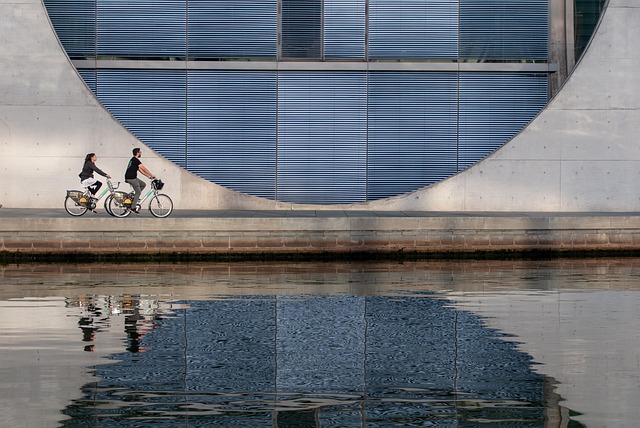Karachi's Saddar Town faces waste management challenges due to urbanization and high density but is innovating with recycling initiatives, community awareness, and advanced technologies to transform waste into resources, aiming to become a model for sustainable urban waste management in Pakistan and beyond.
Saddar Town, Karachi, faces significant waste management challenges reflecting its bustling urban landscape. This article delves into the intricate issues plaguing the area’s trash collection and recycling efforts, exploring both current practices and pressing barriers. We analyze innovative solutions that could transform Saddar into a cleaner, greener metropolis. Ultimately, we emphasize the crucial role of community involvement in achieving sustainable waste management for Karachi’s future.
- Understanding Waste Management in Saddar Town, Karachi
- The Current State of Trash Collection and Recycling Efforts
- Challenges and Barriers to Efficient Waste Disposal
- Innovative Solutions for a Cleaner, Greener Karachi
- Community Involvement: Key to Sustainable Waste Management
Understanding Waste Management in Saddar Town, Karachi

Saddar Town, a bustling and vibrant area in Karachi, faces unique challenges when it comes to waste management. With a high population density and rapid urbanisation, effective waste disposal and recycling systems are essential for maintaining a healthy and sustainable environment. Understanding these processes is crucial for any comprehensive overview of the town’s efforts towards cleanliness and ecological preservation.
Karachi, as one of Pakistan’s largest metropolises, has seen significant growth in its waste generation rates. Saddar Town, with its commercial and residential hubs, contributes significantly to this total. Local authorities have been implementing various initiatives to manage this issue, focusing on recycling, proper disposal methods, and community awareness campaigns. By adopting innovative strategies, the town aims to minimise environmental impact and set an example for efficient waste management in urban areas across Karachi.
The Current State of Trash Collection and Recycling Efforts

Saddar Town, a vibrant and bustling area in Karachi, faces significant challenges when it comes to waste management. The current state of trash collection and recycling efforts is a complex issue that requires immediate attention. Despite the city’s dynamic nature, inadequate waste disposal systems have led to mounting garbage in streets, parks, and open spaces.
Efforts to improve recycling rates are underway, with local initiatives promoting segregation at source and community-based recycling programs. However, these measures face obstacles due to limited resources, lack of public awareness, and inconsistent government policies. Enhancing waste management in Saddar Town demands a collaborative approach involving the municipal corporation, residents, and private sector partners to achieve a cleaner, more sustainable future for the metropolis.
Challenges and Barriers to Efficient Waste Disposal

Saddar Town, a vibrant area in Karachi, faces significant challenges when it comes to efficient waste management. The rapid urbanization and growing population have strained the existing infrastructure, leading to issues like illegal dumping sites and overflowing landfills. These practices not only pose serious environmental hazards but also attract harmful pests and diseases.
The barriers to effective waste disposal in Saddar Town are multifaceted. Limited resources for waste collection and inadequate recycling facilities contribute to the problem. Additionally, lack of public awareness about segregation and proper disposal methods further complicates matters. Despite these challenges, implementing innovative solutions like smart waste management systems and engaging local communities could significantly improve the current situation, transforming Karachi into a cleaner, more sustainable city.
Innovative Solutions for a Cleaner, Greener Karachi

Karachi, Pakistan’s bustling metropolis, faces significant challenges in waste management due to its dense population and rapid urban growth. However, the city is also a hub for innovative solutions that offer hope for a cleaner, greener future. One such initiative involves the implementation of advanced recycling technologies, which not only reduce landfill waste but also create valuable resources. For instance, pilot projects have explored using biodegradable materials from food waste to construct sustainable building materials, transforming organic trash into potential construction components.
Additionally, community-based efforts are sprouting up across Saddar Town and other neighborhoods. Local residents and organizations are taking the lead in promoting recycling programs and raising awareness about responsible waste disposal. These grassroots movements encourage citizens to adopt eco-friendly habits, ensuring that waste is minimized at its source. With such progressive steps, Karachi is poised to become a model for sustainable urban living, setting an example for effective waste management practices across Pakistan and beyond.
Community Involvement: Key to Sustainable Waste Management

In Saddar Town, Karachi, community involvement plays a pivotal role in achieving sustainable waste management practices. Active participation from residents is essential to creating an eco-friendly environment. Simple initiatives like segregated waste collection, where different types of waste are sorted at source, can significantly reduce the burden on local authorities. Encouraging community members to take ownership of their neighborhood’s cleanliness fosters a culture of responsibility and sustainability.
Moreover, community engagement in awareness campaigns about recycling and proper waste disposal methods is instrumental. Educational programs aimed at teaching the benefits of reducing, reusing, and recycling can lead to long-lasting behavioral changes. With collective efforts, Saddar Town can become a model for effective waste management in Karachi, setting a precedent for other urban areas to follow suit.
In conclusion, effective waste management in Saddar Town, Karachi, requires a multifaceted approach addressing current challenges and barriers. By enhancing trash collection and recycling efforts, leveraging innovative solutions, and fostering community involvement, we can pave the way for a cleaner and greener future for this vibrant city. Through collective action and sustainable practices, Karachi can serve as a model for efficient waste management in urban areas.
